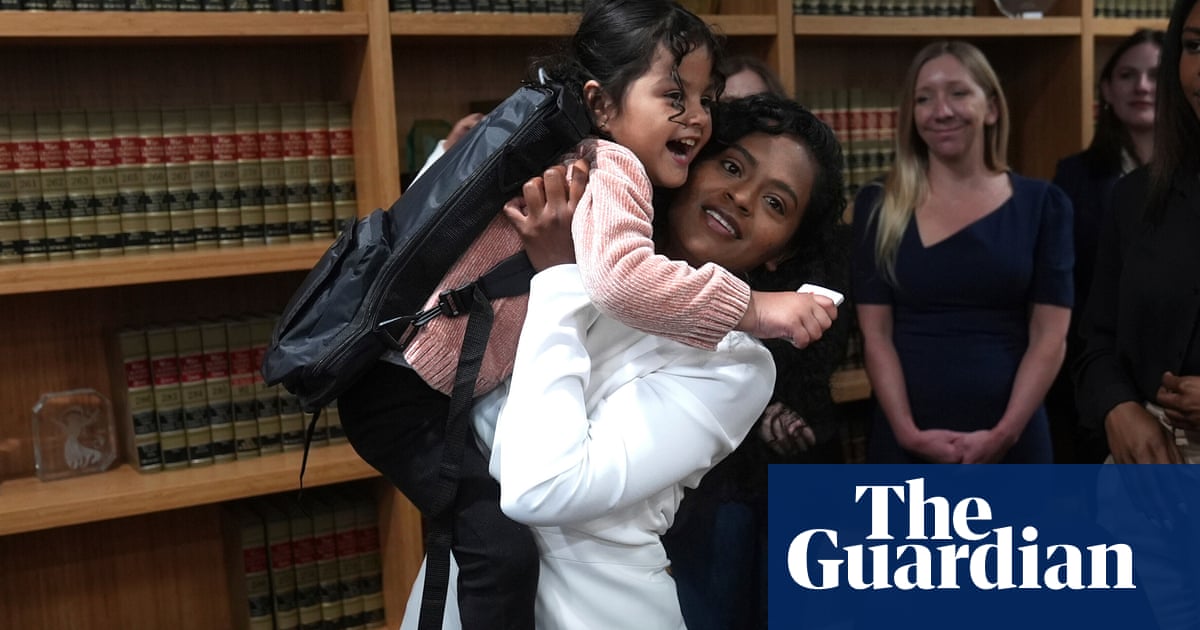The article reveals a significant development regarding the legal status of a child in dire medical need, shedding light on the complexities of immigration policies and humanitarian considerations in the United States. The decision to restore the legal status of a four-year-old girl is intertwined with broader political and social implications, highlighting the influence of public opinion and legislative advocacy on administrative actions.
Public Sentiment and Political Pressure
The reversal of the deportation order came after a national outcry, indicating that public sentiment played a crucial role in this decision. Lawmakers, particularly from the Democratic Party, mobilized to advocate for the family's situation, emphasizing the moral obligation to protect vulnerable individuals. This highlights the power of collective voices in influencing government policies, especially concerning humanitarian issues. The case exemplifies how political pressure can lead to changes in policy, particularly when lives are at stake.
Perception Management
The article aims to shape public perception by portraying the administration's previous decision as callous and contrary to American values. By emphasizing the potential consequences for Sofia's health, the narrative seeks to evoke empathy and outrage among readers. This strategic framing positions the administration as responsive to public concern, thus potentially mitigating backlash against its broader immigration policies.
Potential Omissions
There's a possibility that the article does not address the full implications of the administration’s immigration policies or the experiences of other families in similar situations. By focusing on this individual case, it may divert attention from systemic issues related to the treatment of immigrants and asylum seekers, thus potentially obscuring a broader narrative about immigration reform.
Manipulative Elements
The article could be seen as manipulative due to its emotional appeals and selective framing. Words like "recklessness" and "cruel betrayal" are emotionally charged, aiming to elicit a strong emotional response from the reader. While the reporting is based on factual events, the language used can guide readers toward a particular emotional and political stance.
Credibility Assessment
The news appears credible, as it is based on documented actions by a government agency and responses from lawmakers. However, the framing and language may introduce bias, leading readers to form a particular view of the situation. The credibility is further supported by the involvement of reputable news outlets and legal representatives advocating for the family.
Impact on Society and Politics
This case could have implications for broader immigration policy discussions, especially concerning humanitarian parole and the treatment of families seeking medical assistance. It may prompt further scrutiny of the administration’s immigration policies and inspire similar advocacy efforts for other vulnerable individuals.
Audience Engagement
The article likely resonates more with communities advocating for immigrant rights, healthcare access, and humanitarian aid. It appeals to those who prioritize compassion in policy-making and may galvanize support for reforms aimed at protecting vulnerable populations.
Economic and Market Considerations
While the immediate impact on financial markets may be minimal, changes in immigration policy can influence sectors reliant on immigrant labor, such as healthcare and agriculture. Public sentiment surrounding humanitarian issues can also affect consumer behaviors and corporate social responsibility strategies.
Geopolitical Context
In a broader sense, the article touches on the United States' humanitarian stance, which can affect its global image and relationships with other countries regarding immigration and asylum policies. As discussions around immigration reform continue, this case may influence international perceptions of the U.S. commitment to human rights.
AI Influence in Reporting
It is unlikely that AI significantly influenced the writing of this article, as the content seems to reflect human reporting on a specific legal and humanitarian issue. However, AI could potentially assist in analyzing public sentiment or generating reports on similar cases. The narrative's structure and emotional appeal suggest a traditional journalistic approach rather than AI-driven content generation.
In conclusion, while the article presents a significant and emotionally charged story, it also frames the issue in a way that may serve specific political aims. The manipulation of language and emphasis on emotional aspects suggest a calculated approach to mobilize public sentiment in favor of humanitarian advocacy.
